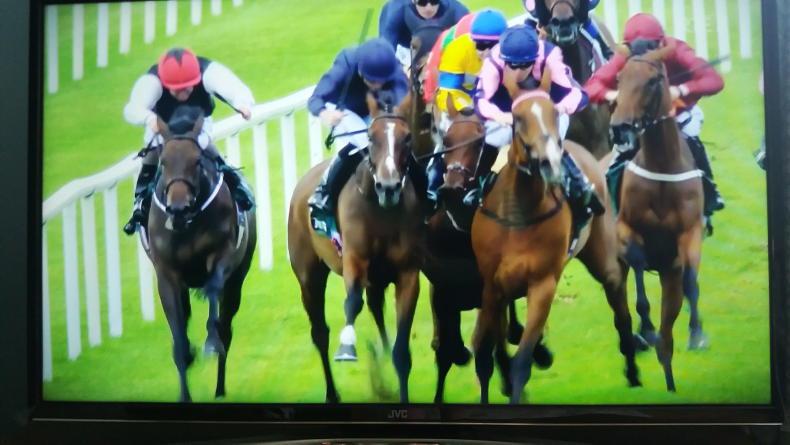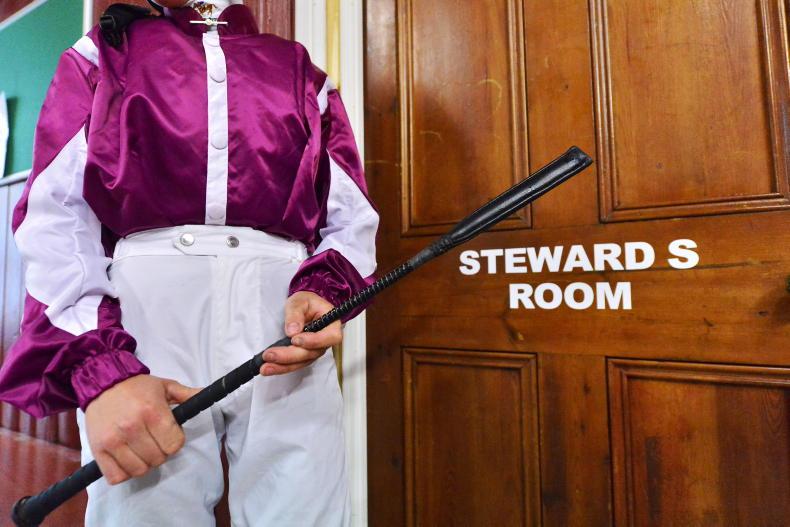IT wasn’t surprising that the Norfolk Stakes result was allowed to stand. It wasn’t surprising that The Ridler was allowed to keep the race, given what we know about rules and precedent and all.
The only surprise is that, 12 years on, the rules, and the interpretation thereof, are still as they are.
You can’t blame Paul Hanagan, he rode to the rules, he rode to win, secure in the knowledge that the balance of probability and the power of precedent were on his side. Get to the winning line first, and you are long odds-on to keep the race, regardless of how you got there.
It wasn’t surprising either that the rider was rewarded with a lengthy ban. That seems to be the remedy of choice for stewards. Instead of disqualifying the horse, ban the rider.
But we know that, as a deterrent, especially at the big meetings, the shop-window meetings, at Royal Ascot, that is ineffective. Ten days for a Royal Ascot winner, a Norfolk Stakes winner? Most riders would take that all day long, as well as the hand that gave it to them.
There are two core elements to this: safety and justice. If every jockey rides with a win-at-all-costs mentality, get to the winning line first and take your chances in the stewards’ room if necessary, knowing that the rules are on your side, that increases the risk element of an already perilous profession.
The stewards do have the ‘dangerous riding’ remedy at their disposal, even under the rules as they stand, but there hasn’t been a ‘dangerous riding’ incident in Britain since 2009.
If Brave Nation had clipped heels and come down when he was squeezed inside the final furlong, would that have been deemed to be dangerous riding?
The wider effects should be secondary. The consequences of an action should be irrelevant in determining the nature of the action.
If you overtake a car on a blind bend, just because there isn’t another car coming in the opposite direction, it doesn’t mean that it isn’t dangerous driving.
Then there is the natural justice aspect. The he-probably-would-have-won-anyway attitude. The he-was-probably-the-best-horse-in-the-race mantra. It’s the easy decision. Let the result stand, stick with the status quo.
But why should the best horse in the race be deemed the winner, even if he is the best horse, just because he is the best horse? It doesn’t follow in sport. Being the best has never guaranteed success.
Allow the goal to stand. He probably would have scored anyway even if he hadn’t pulled the defender back.
The benefit of the doubt goes to the perpetrator in racing, and that does not make sense. It’s not right that the horse who caused the interference is allowed to keep the race unless it is almost certain that the victim would have won had the interference not occurred.
It doesn’t follow the rules of natural justice for starters. In what other walk of arbitration is the perpetrator favoured over the victim?
Turn it around. Give the benefit of the doubt to the victim. Place the burden of proof on the perpetrator of the crime. The horse who passed the post first is allowed to keep the race only if it is almost certain that he would have won the race had he not caused the interference.
It’s a subtle difference but, actually, such a change could have significant consequences.
Would Brave Nation have won the Norfolk Stakes had he not been hampered by The Ridler? Probably not. Would he have finished second or third instead of fourth? Maybe.
Would Crispy Cat have won? Who knows. Nobody can know for certain. But he might have. We know that he might have.
What is the probability that he would have? 0.3? 0.4? Would he have finished second at worst instead of third? Probably. 0.8, 0.9. You can argue the case and, if the benefit of the doubt went to the victim, that should be sufficient to have the result altered.
If jockeys knew that that was the case, it would be more likely that they would take decisive and immediate corrective action than that they wouldn’t. And that, after all, should be the ultimate objective.


 This is a subscriber-only article
This is a subscriber-only article
 It looks like you're browsing in private mode
It looks like you're browsing in private mode










SHARING OPTIONS: